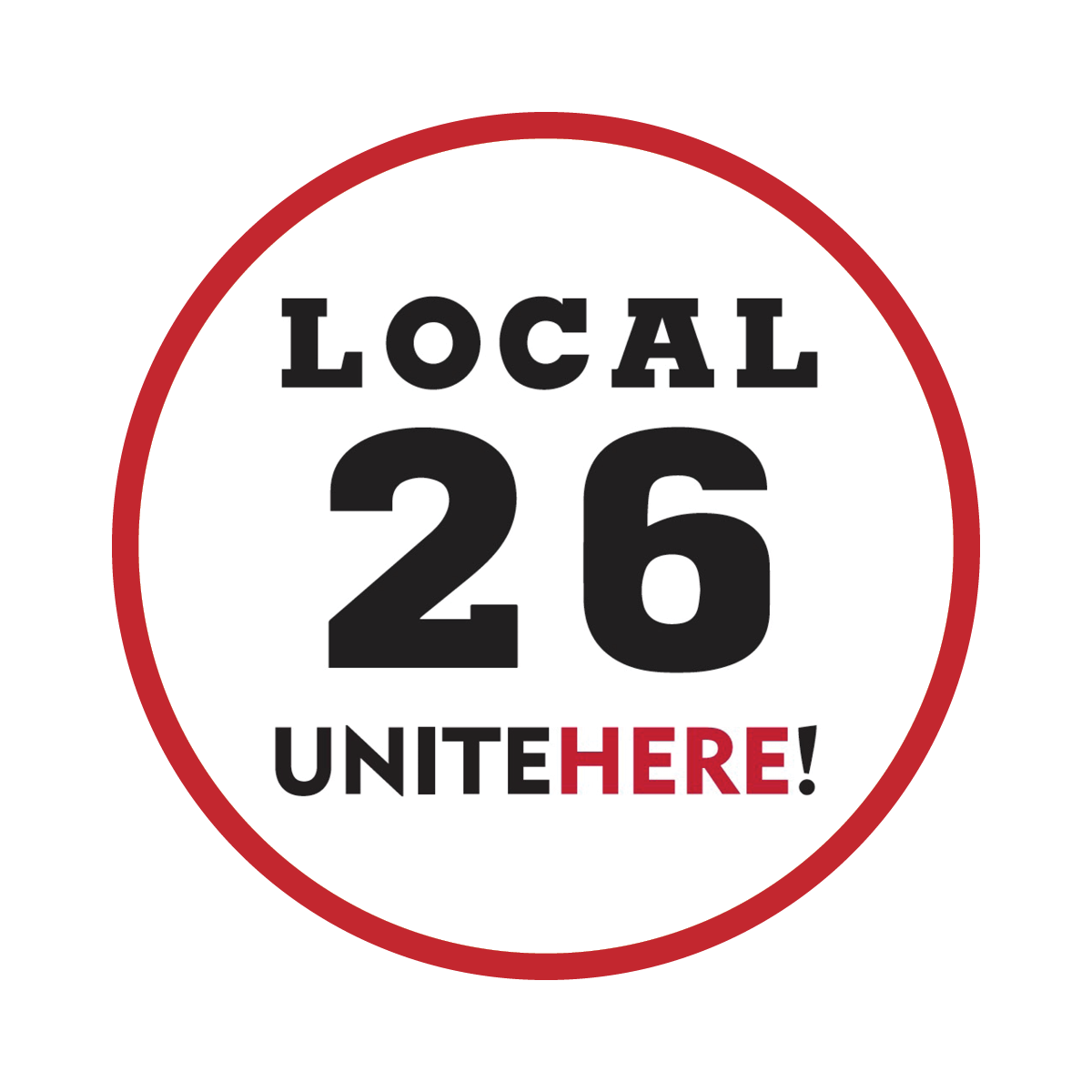Lesley Cafeteria Workers Rally for Fair Pay
Alas, the saga for workers’ rights at Lesley University continues. On Thursday, February 13th, union organizers, Bon Appetit cafeteria workers, students, and faculty gathered on campus to rally for a decent living wage.
The rally began with a march from White Hall, which led to a circle of chants and slogans in the middle of the Doble Quad. To combat the snow, wind, and freezing rain, organizers handed out ponchos and hand-warmers. Armed with these as well as picket signs reading “UNITE HERE!”, the rally-ers stood up to the management and the weather.
Coming off of the heels of a recent unionization, the cooks, line chefs, and dishwashers of the Charlie’s, Washburn, and White dining establishments was had a bottom line of fair pay. Issues with low pay and lack of benefits has long been an issue between, Lesley, Bon Appetit Management, and their staff. Like the latter’s first rally that occurred last March, Thursday’s procession consisted of several worker testimonies. Among the speakers were Cambridge City Councilor Mark McGovern, Brattle Campus Chef Randy Wright and other cafeteria workers, Lesley student activist Theresa Powers and EDS Professor Reverend Dr. Norman Faramelli.
Brattle chef Randy Wright advocating for a cafeteria worker pay raise. (Photo Credit: Natalie Cohen)
Speaking in English and Spanish, cafeteria workers explained to the crowd that working full time on the wages they are paid by management is not enough for to pay for all their basic needs. ”I can’t pay my rent” claimed Randy Wright, who is also in recovery from addiction while trying to stay on his feet as a chef at Washburn Dining Commons. Senior Theresa Powers, who has long been an advocate for workers rights on campus and frontrunner of the People’s Alliance for Worker Solidarity (PAWS),aired her grievances with the system in the rally’s finale:
“As a student here at Lesley, I am absolutely appalled at the fact that these workers, who I call my family, can’t afford to feed their own families. We pay a lot of money to go to this school. How is our money transferring into what they get paid at all? It is time for Lesley to stand up for what’s right.”
The rally concluded with more chanting and calls of action before the cold and wet crowd dispersed. Though Bon Appetit and Lesley officials have not yet publicly responded, the cafeteria workers and their supporters certainly made an attention-grabbing statement. But will the future bring higher pay to those who feed the Lesley community? Only time will tell.
